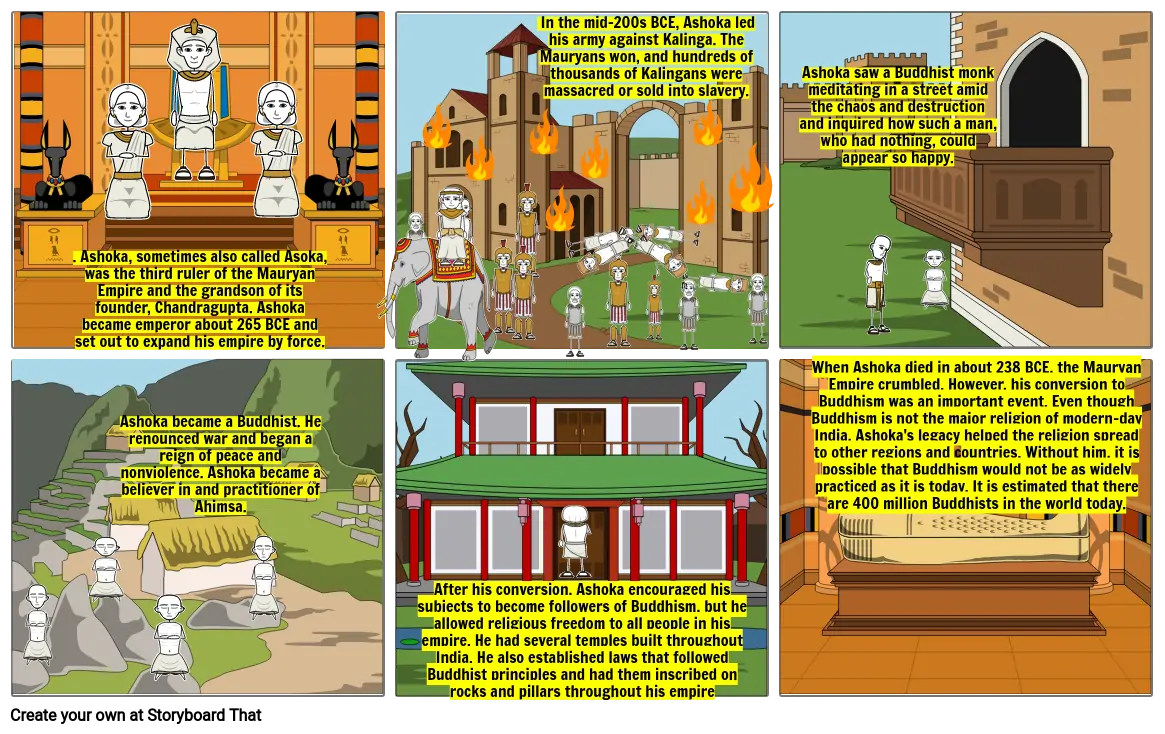The Story of Ashoka the Great

Storyboard Text
- . Ashoka, sometimes also called Asoka, was the third ruler of the Mauryan Empire and the grandson of its founder, Chandragupta. Ashoka became emperor about 265 BCE and set out to expand his empire by force.
- In the mid-200s BCE, Ashoka led his army against Kalinga. The Mauryans won, and hundreds of thousands of Kalingans were massacred or sold into slavery.
- Ashoka saw a Buddhist monk meditating in a street amid the chaos and destruction and inquired how such a man, who had nothing, could appear so happy.
- Ashoka became a Buddhist. He renounced war and began a reign of peace and nonviolence. Ashoka became a believer in and practitioner of Ahimsa.
- After his conversion, Ashoka encouraged his subjects to become followers of Buddhism, but he allowed religious freedom to all people in his empire. He had several temples built throughout India. He also established laws that followed Buddhist principles and had them inscribed on rocks and pillars throughout his empire
- When Ashoka died in about 238 BCE, the Mauryan Empire crumbled. However, his conversion to Buddhism was an important event. Even though Buddhism is not the major religion of modern-day India, Ashoka's legacy helped the religion spread to other regions and countries. Without him, it is possible that Buddhism would not be as widely practiced as it is today. It is estimated that there are 400 million Buddhists in the world today.
Over 30 Million Storyboards Created

